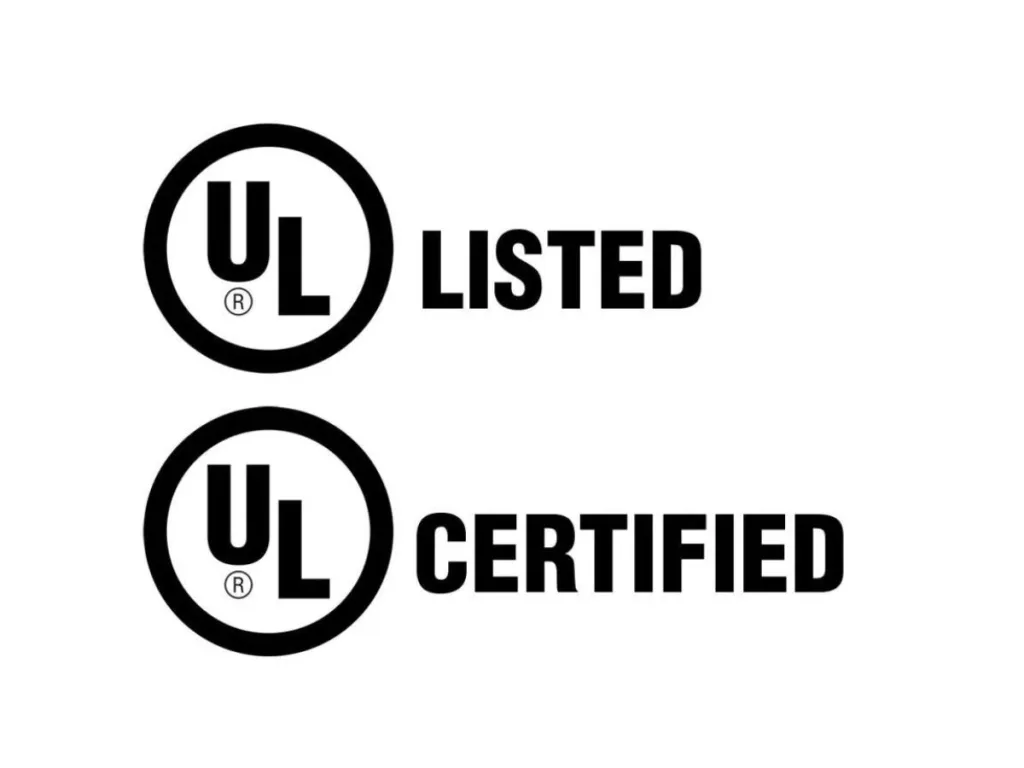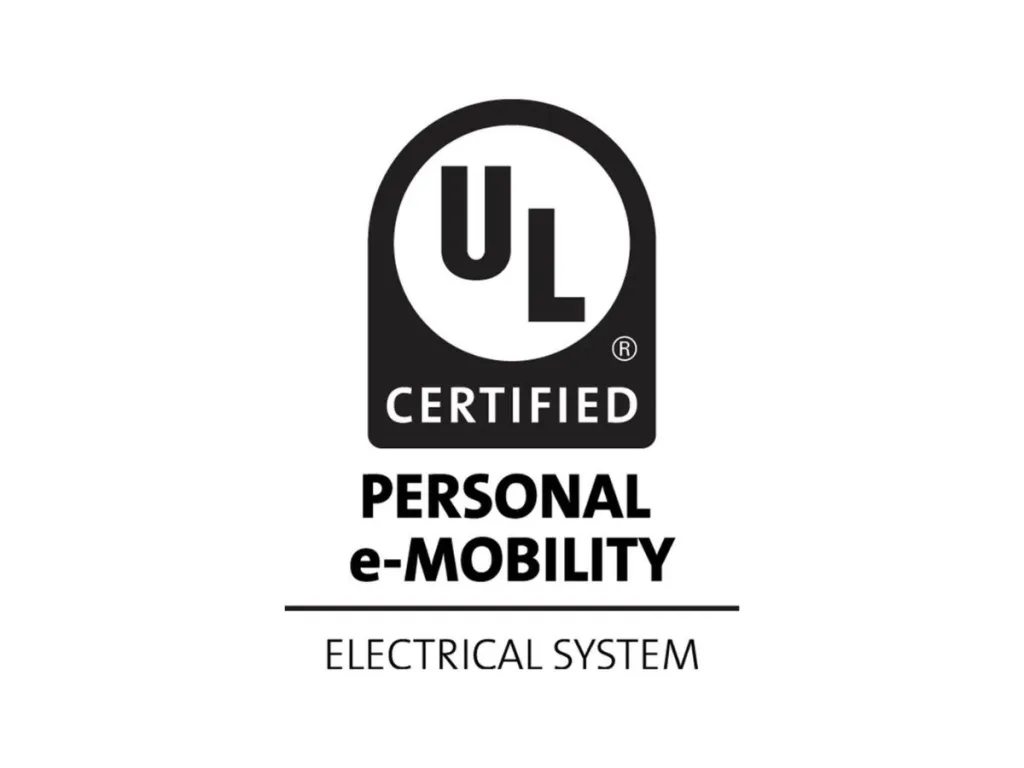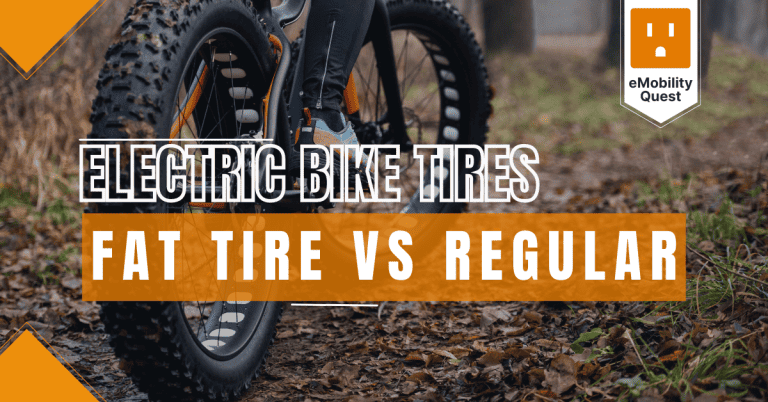UL Certified Ebikes and Batteries: What Does It Mean?

Are you considering purchasing an electric bike? UL certification plays a vital role in ensuring the safety and reliability of your bike.
UL certification covers the entire electrical system, including the battery. Numerous well-known brands offer ebikes that are UL certified, so it is important to be able to identify them and understand the significance of UL certification for your own peace of mind.
Key Takeaways
- UL certification is a valuable tool for consumers looking to purchase a reliable and secure ebike. With the help of UL certification, you can ensure that your ebike and its battery meet the highest standards of safety and reliability.
- Types of UL Certification:
- UL 2271: Relevant to the e-bike’s battery, emphasizing reduced risk of fire.
- UL 2849: Covers the entire electrical system, focusing on reducing the risk of electrical malfunctions.
- So, when you’re shopping for a new ebike, make sure to keep an eye out for UL certification. You can be confident that your purchase will be a wise one.
Understanding UL Certification for Ebikes: A Primer
UL Certification is well-known for Ebikes. UL 2271 relates to the battery, and UL 2849 covers the whole electrical system. Both confirm the ebike’s safety and standard adherence.
What is UL Certification
UL Certification serves as a means for consumers to ensure the safety of their electric bikes and batteries. It guarantees compliance with industry standards, instills confidence, and minimizes the risk of electrical malfunctions or fires. Furthermore, it offers the following benefits:
- Thorough examination of performance, electrical, and safety components through rigorous testing.
- Compatibility with charging stations and accessories.
- Enhanced resale value for products that possess UL certification.
For e-bike users, UL certification offers peace of mind as it assures that the bike adheres to industry standards. When you choose an e-bike, know that UL certified bikes are more likely to feature top-quality components, resulting in enhanced performance and extended lifespan.
Differences Between UL 2271 and UL 2849
UL Certification is a testament to the safety and reliability of e-bikes. It’s crucial for consumers to recognize the differences between the two main certifications: UL 2271 and UL 2849.
- UL 2271 – Battery-Centric Certification
- Scope: Focuses exclusively on the battery pack of an e-bike.
- Safety Measures: Emphasizes rigorous testing for:
- Fire resistance
- Impact resistance
- Electrical safety
- Publication Year: 2016
- UL 2849 – Comprehensive Electrical System Certification
- Scope: Encompasses the entire electrical drive train system, including:
- Battery
- Motor
- Controller
- Additional components
- Safety Measures: Ensures thorough testing for:
- Fire resistance
- Electrical safety
- Electromagnetic compatibility
- Special Note: Evaluates roadworthiness, a feature not present in UL 2271.
- Publication Year: 2020
- Scope: Encompasses the entire electrical drive train system, including:
While both certifications ensure an e-bike’s alignment with industry standards, UL 2849 offers a broader scope, covering the full electrical system of the e-bike. It’s vital for potential buyers to confirm with manufacturers regarding UL certification to ensure they’re investing in a tested and verified product.
| Certification | UL 2271 | UL 2849 |
|---|---|---|
| Relevance | Battery | Entire electrical system |
| Testing | Independent | Independent |
| Rigour | High | High |
| Importance | Reduced risk of fire | Reduced risk of electrical malfunctions |
The Mechanics Behind the Power: How Ebike Batteries Work
Understanding the inner workings of ebike batteries is vital, particularly when considering safety precautions. An ebike battery consists of numerous cells connected in parallel, alongside a Battery Management System (BMS) to ensure proper functionality. The acquisition of UL certification is imperative in evaluating the safety of an ebike battery, as it guarantees adherence to industry standards.
Anatomy of an Ebike Battery
An ebike battery typically consists of multiple lithium battery cells connected together in parallel and a Battery Management System (BMS) that ensures safe charging and optimal performance. Rad Power Bikes utilizes high-quality cells from reputable brands such as Samsung and LG. These lithium-ion batteries play a crucial role in preventing fire risks.
Here’s a glimpse into the composition of an ebike battery:
- Battery cells: These are the individual cells that compose the battery, linked together in parallel.
- BMS: The Battery Management System, which guarantees proper functionality and safe charging of the battery.
- Cells from reputable brands: Cells from esteemed brands like Samsung and LG are vital for ensuring the safety and performance of the battery.
The Role of UL Certification in Battery Safety
Understanding the importance and implications of UL Certification can empower consumers when making informed decisions about their e-bike battery purchases.
Key Points about UL Certification for Batteries:
- UL Listed Batteries:
- Batteries that have been tested as complete final products.
- Indicates rigorous testing for fire resistance, impact resistance, and electrical safety.
- UL Recognized Batteries:
- Suitable for factory installation and are considered complete components.
- While they might not undergo the same depth of testing as UL Listed batteries, they still adhere to specific safety standards.
- Testing Standards:
- Focuses on consumer portable applications and may not always align with the needs of other applications.
- Battery Pack Certification:
- Relevant for both primary (non-rechargeable) and secondary (rechargeable) batteries used in various products.
- Importance of UL Certification:
- UL certification aids consumers in identifying batteries subjected to rigorous testing.
- Provides assurance regarding evaluations for fire resistance, electrical safety, and other significant aspects.
UL Certification plays a pivotal role in ensuring the safety and reliability of e-bike batteries. For consumers, it symbolizes a battery’s compliance with nationally-recognized safety standards, ensuring the battery is dependable and adheres to rigorous testing and safety guidelines.
Is UL Certification a Must? Evaluating Ebike Battery Safety
As someone who’s passionate about e-bikes, you probably understand the significance of UL certification. However, are you aware of the potential dangers associated with batteries that aren’t UL certified and the importance of CE certification? It’s crucial to comprehend these certifications and their significance to ensure the safety and reliability of your battery. Let’s explore the value of UL certification and the risks involved with batteries that don’t possess this certification.
The Potential Risks of Non-UL Certified Batteries for Electric Bikes
Choosing a battery for your e-bike? Safety should be a top priority. Without UL certification, your battery’s safety might be compromised. Here’s why:

- Fire and Electrical Dangers:
- Batteries lacking UL certification can pose a heightened risk of electrical mishaps or fires.
- Inferior manufacturing standards in non-certified batteries and chargers may lead to fires, resulting in property loss, injuries, or worse.
- Key Risks of Non-Certified Batteries:
- Low Quality Cells: These can easily overheat or short-circuit, posing serious fire threats.
- Defective Chargers: Some might not regulate voltage and current correctly, a potential fire starter.
- Untested by CPSC: Batteries not vetted by the Consumer Product Safety Commission might hide undetected safety issues.
- Other Concerns:
- Overheating: Lithium-ion batteries, the most common type in e-bikes, are prone to heat. Without proper certification tests, this risk amplifies.
- Subpar Quality: Made from cheap materials, non-certified batteries can deliver poor performance and expose users to safety hazards.
- Fire Susceptibility: The fire resistance of non-certified batteries often remains untested.
- Short Circuiting: Without protective design measures, accidental shorting can easily happen.
- Unreliable Warranty: Non-certified batteries might lack a warranty, leaving users without a safety net.
While non-certified batteries might be tempting due to a lower price point, the associated risks far outweigh the benefits. Always check for UL certification to ensure you’re getting a safe and reliable battery for your e-bike.
The Relevance of CE Certification
CE certification is a common mark on electric bikes sold in the US, emphasizing their adherence to EU health, safety, and environmental standards. It’s more than just a test mark; it’s a benchmark for manufacturing that confirms compliance with safety regulations. Meanwhile, UL certification demands independent testing, offering a significant advantage for brands seeking to highlight their commitment to safety. While CE certification is essential for validating electric bikes’ conformity to EU standards, UL certification, especially UL 2271 and UL 2849, provides a robust layer of testing that greatly minimizes the chances of fire or electrical issues. Both certifications, each valuable in its own way, collaborate to ensure the utmost safety and quality of electric bikes.
Navigating the Ebike Marketplace: Recognizing UL Certified Brands
When exploring the ebike market, it’s crucial to recognize the leading brands that have obtained UL certification. Aventon, Radio Flyer, Velotric, Juiced Bikes, and Buzz Bicycles are just a few examples of brands that have successfully achieved UL certification. Additionally, there are other brands like Ecotric, Tesgo, and BeeCool that are currently in the process of obtaining UL certification. It’s also worth mentioning that certain brands like Bosch and Yamaha do not possess UL certification.
Top Ebike Brands with UL Certification Overview
Top eBike Brands with UL Certification:
- Aventon: Their eBikes and batteries are UL certified, assuring adherence to electrical and fire safety standards as per UL 2849.
- Velotric: Both the Discover 1 and Go 1 models have achieved ‘Gold-Star’ safety certification from Underwriters Laboratories (UL2849 and UL2271). The Go 1 is additionally IPX6 rated and ISO4210 compliant.
- Juiced Bikes: Their entire current line-up is equipped with G2 52V UL certified battery packs.
- Trek Bikes: Their e-systems and batteries adhere to multiple safety standards, including UL 2849, UL 2271, and UL 2580.
- Ecotric: Known to offer UL certified electric bikes.
- Bosch: All their batteries are UL listed.
- Flyer Ebikes: All models are UL 2849 certified.
- Ultra Ebikes: They too provide UL certified electric bikes.
Yet To Be Confirmed:
- Lectric eBikes: Although not explicitly UL certified based on current data, their batteries meet ISO 4210 and UN 38.3 safety standards.
- Rad Power Bikes: Not UL certified, but they adhere to the EN15194 European standard. They are, however, pursuing UL certification.
Key Benefits of UL Certification for Consumers:
- Peace of Mind: Assurance of premier quality and safety.
- Longevity: Elevated performance and durability due to high-quality components.
- Resale Value: UL certified eBikes often command a better resale value.
UL certification is the eBike industry’s hallmark for electrical safety. It signifies rigorous testing and evaluation, ensuring that each component meets UL’s exacting standards. Brands undergo regular audits to maintain this standard. While the UL 2849 certification underscores electrical safety, it does not gauge the e-bike’s overall roadworthiness. It’s crucial for consumers to verify individual e-bike models for certification even if the brand is UL certified.
Other Brands to Note: Major players such as Bosch, Shimano, Panasonic, and Yamaha incorporate UL certified components within their products.
Buyer’s Guide: How to Identify UL Certified Ebikes
Spotting the certification marks, checking official directories, and exploring the brand websites are effective ways to identify UL certified ebikes. Keep an eye out for labels indicating UL certification or visit the Underwriters Laboratories website or the brand’s website for certification information. Conducting thorough research beforehand can prevent you from unknowingly buying an ebike that lacks the necessary certification.
Spotting the Certification Marks
Identifying UL-certified e-bikes can pose a challenge due to the absence of a unified database. One must be vigilant in spotting UL-listed components, including the electrical system, batteries, and other electrical elements.

To determine if an e-bike is UL certified, consider the following steps:
- Inspect for UL Logo: Search for the UL logo on the e-bike or its battery. This emblem confirms the e-bike’s compliance with established electrical and fire safety standards.
- Refer to Public Listings: Some manufacturers publicly disclose their UL certifications. Reference these listings to validate the UL certification of a specific e-bike model or brand.
- Review Official Documentation: Delve into the product’s documentation, user manuals, or the brand’s official website. Often, they contain pertinent information regarding UL certification.
- Engage with the Manufacturer: Directly contact the e-bike maker to ask about their UL certification. They’ll offer precise and current details about their product’s certification.
However, it’s vital to recognize that the presence of a UL certification is not universal. While it’s a valuable safety metric, not all e-bikes bear this certification. Several e-bikes might adhere to other safety protocols or have been evaluated by alternative certifying entities. Hence, verifying UL certification should be part of a comprehensive approach to assessing an e-bike’s safety and quality.

Checking Official Directories and Brand Websites
For peace of mind when purchasing an e-bike, ensuring it has a UL certification is paramount. This certification guarantees both the safety and dependability of your electric bike.
Underwriters Laboratories stands as a trusted source to confirm a bike’s UL certification. Most e-bike brands also proudly display their UL certifications on their official websites.
- Refer to Official Directories: UL maintains a comprehensive product certification database on their official site. Here, you can easily check if particular e-bike brands or models boast the UL certification.
- Browse Brand Websites: Delve into e-bike brands’ official websites. Many highlight their UL certification, sometimes even dedicating specific sections to it.
- Engage Directly with the Manufacturer: For the most accurate details, contact the e-bike manufacturer. They can provide the latest information on their certification status.
Remember, not all e-bikes or their components carry the UL certification. Some brands may only certify specific models. By using official directories, inspecting brand websites, and communicating with manufacturers, you can accurately discern the UL certification status of any e-bike model or brand.
In Conclusion: The Value of UL Certification in the Ebike Industry
As an ebike rider, ensuring the safety and reliability of your bike is paramount. UL certification plays a vital role in guaranteeing top-notch components and preserving your well-being. With the ebike industry’s expansion, the significance of UL certification has grown exponentially, instilling riders with confidence and peace of mind.
Ensuring Rider Safety and Confidence
Ensuring rider safety and confidence holds great importance for ebikes, and UL certification serves as a method to achieve this. It verifies that the bike meets critical electrical and fire safety standards. Through UL certification, riders can have peace of mind in the following aspects:
- Reduced fire risk with a thorough examination of the electrical drive train system, battery, and charger.
- Adherence to industry standards for components, such as bicycle frames and forks.
- Fulfillment of Consumer Product Safety Commission (CPSC) guidelines.
UL certification provides consumers with reassurance that their purchase aligns with industry standards and represents a high-quality product. Considering UL certification becomes a crucial factor when selecting a new ebike.
The Evolving Landscape of Ebike Certifications
You may be curious about the certifications to consider when shopping for an ebike. The certification landscape is constantly evolving. UL certification is a fantastic way to ensure the safety and reliability of the product you are purchasing. It is a voluntary process that involves the evaluation of the electrical drive train system, battery, and charger to approve the sale of ebikes in the US.
UL 2849 and UL 2271 are the common UL certifications for ebikes. There are also other certifications, such as EN 15194.
UL certification is a valuable tool for consumers seeking to purchase a dependable and secure ebike. With the assistance of UL certification, you can ensure that your ebike and its battery meet the highest standards of safety and reliability.
So, when you’re shopping for a new ebike, make sure to keep an eye out for UL certification. You can be confident that your purchase will be a wise one.
Frequently Asked Questions
Q: What is UL 2849 certification for ebikes and batteries?
A: UL 2849 certification is a guarantee of quality and reliability for electric bikes and batteries. It ensures that the bike and its electrical system meet safety requirements and are free from any potential hazards.
Q: Why is UL 2849 certification important when purchasing an ebike?
A: UL 2849 certification means that the ebike and its battery have undergone rigorous testing to meet safety standards. It provides assurance that the bike is safe to use and has passed all necessary inspections.
Q: What are the safety requirements for UL 2849 certification?
A: UL 2849 certification requires that the ebike’s electrical wiring, batteries, and overall design meet specific safety standards. It ensures that the bike is built to prevent electrical malfunctions, battery fires, and other potential hazards.
Q: Are all ebikes sold certified under UL 2849?
A: Not all ebikes on the market are UL 2849 certified. It’s important to check the certification status of the bike you’re looking to purchase. Choosing a certified ebike ensures safety and reliability.
Q: What can happen if I use an uncertified ebike or battery?
A: Using an uncertified ebike or battery can increase the risk of electrical malfunctions, battery fires, and other safety hazards. It’s important to choose certified products to minimize these risks.
Q: What is the role of UL certification in e-bike safety?
A: UL certification plays a crucial role in e-bike safety by ensuring that the bike meets specific safety standards. It helps prevent accidents, injuries, and fires caused by e-bike batteries or electrical system malfunctions.
Q: Can UL 2849 certification guarantee that ebike batteries won’t cause fires?
A: While UL 2849 certification reduces the risk of battery fires, it doesn’t guarantee that fires won’t occur. However, certified batteries are designed and tested to minimize the likelihood of fires caused by poor construction, overcharging, or other factors.
Q: Are all ebike companies required to have UL 2849 certification?
A: UL 2849 certification is not a mandatory requirement for all ebike companies. However, choosing a brand that has their products certified ensures an added level of safety and reliability.
Q: What is the certification process for UL 2849?
A: The certification process for UL 2849 involves thorough testing of the ebike’s electrical components, batteries, and overall design. It also checks for compliance with safety standards set by organizations such as the Consumer Product Safety Commission (CPSC) and the National Fire Protection Association.
Q: Can UL 2849 certification be applied to other micromobility devices?
A: UL 2849 certification is primarily focused on electric bikes but can also be applied to other micromobility devices like e-scooters and e-mobility devices. It ensures that these devices meet safety requirements and are reliable for consumer use.
Q: What is UL 2849 certification and why is it important for ebikes and batteries?
A: UL 2849 certification is a safety certification standard specifically for ebikes and batteries issued by the Underwriters Laboratories (UL). It ensures that the electrical system, wiring, and batteries of ebikes meet stringent safety requirements, reducing the risk of electrical malfunctions, fires, and other hazards. UL 2849 certification is important as it guarantees that the ebikes and batteries are manufactured and tested to meet the highest safety standards.
Q: Why should I choose an UL certified ebike over a non-certified one?
A: Choosing an UL certified ebike ensures that the product has undergone rigorous testing for safety and reliability. Non-certified ebikes may not meet the necessary safety requirements, increasing the risk of electrical malfunctions, battery fires, and other hazards. By choosing an UL certified ebike, you can have peace of mind knowing that you are using a high-quality and safe electric bike.
Q: What are the risks of using non-UL certified ebikes and batteries?
A: Non-UL certified ebikes and batteries may pose several risks. These include electrical malfunctions, battery fires, overcharging, and electric shocks. Using non-certified products also increases the chances of non-compliance with safety requirements, potentially resulting in accidents or damage to the electrical system. It’s important to choose UL certified products to mitigate these risks.
Q: Are major ebike brands UL certified?
A: Many major ebike brands prioritize safety and have their products UL certified. Companies like Rad Power Bikes, Lectric, and others have their ebike models certified to comply with safety standards. When purchasing an ebike, it’s a good practice to research and choose a brand that prioritizes safety and holds UL certification for their products.
Q: Can UL 2849 certification prevent battery fires on ebikes?
A: UL 2849 certification significantly reduces the risk of battery fires caused by poorly designed or faulty electrical systems. The certification process evaluates the safety of batteries and electrical components, ensuring that they meet specific safety standards. While UL certification can greatly reduce the risk of battery fires, it’s still important to use and maintain the batteries according to the manufacturer’s instructions to further minimize any potential risks.
Q: How can I identify if an ebike or battery is UL certified?
A: UL certified ebikes and batteries typically carry a label or mark indicating their certification. Look for the UL 2849 mark on the product itself or check the manufacturer’s specifications to confirm if the product is certified. If in doubt, you can always reach out to the manufacturer for verification.
Q: Are there other safety certifications for ebikes and batteries apart from UL 2849?
A: Yes, apart from UL 2849, there are other safety certifications that apply to ebikes and batteries. One such certification is EN 15194, which is a European standard for electric bikes. Additionally, certain micromobility devices may need to meet specific safety requirements set by consumer product safety commissions or national fire protection agencies. It’s important to research and ensure that the products you’re considering comply with the relevant safety certifications in your region.
Q: Can UL certified ebikes and batteries guarantee protection against all electrical hazards?
A: While UL certified ebikes and batteries significantly reduce the risk of electrical hazards, they cannot provide absolute protection against all possible risks. It’s important to use and maintain the products according to the manufacturer’s instructions, avoid overcharging, and address any wiring or electrical issues promptly to ensure the continued safety and reliability of your ebike.
Q: How do I get in touch with Underwriters Laboratories for more information about UL 2849 certification?
A: If you need more information about UL 2849 certification or have specific inquiries, you can get in touch with Underwriters Laboratories directly. Visit their official website for contact details or reach out to their customer support team for assistance.
Q: Do ebike batteries pose any environmental risks?
A: Ebike batteries, like any other batteries, should be disposed of properly to minimize environmental impact. It’s important to follow the manufacturer’s recommendations for battery disposal or recycling. Some manufacturers offer battery recycling programs or provide information on local recycling centers. By disposing of ebike batteries responsibly, you can contribute to reducing environmental hazards associated with battery waste.





